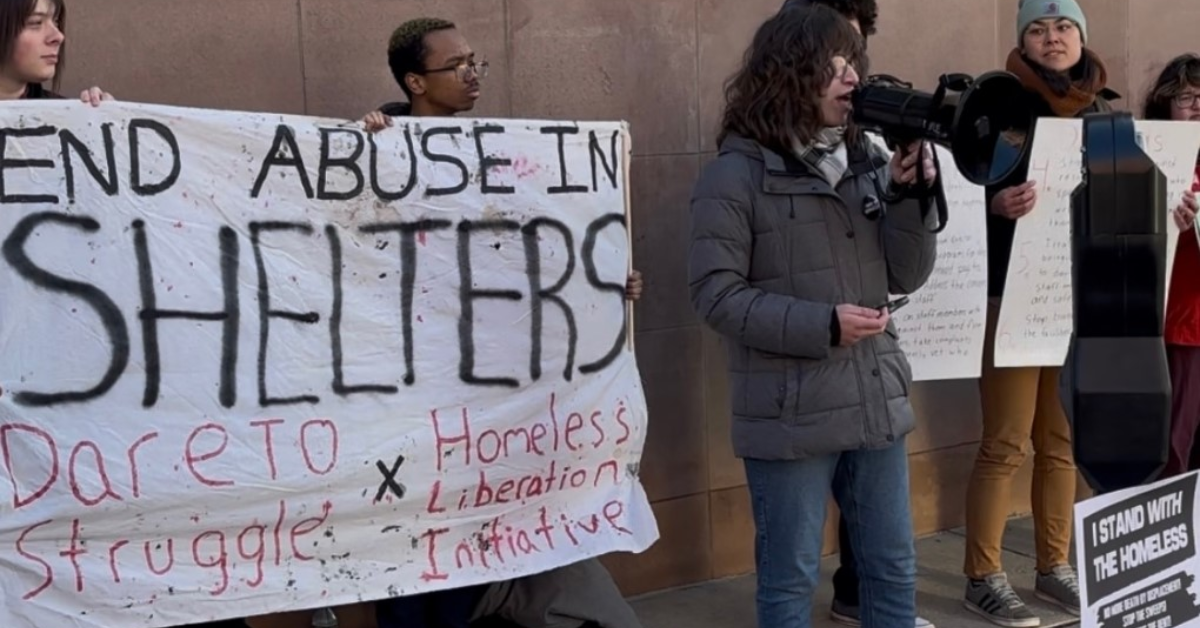State troopers in Connecticut have come under fire for reportedly harassing and forcing homeless people out of the Fastrak bus stations. Several eyewitnesses and advocates say the troopers are regularly removing homeless individuals from these public transit areas, leaving many in difficult situations with nowhere to go.
Fastrak bus stations in Connecticut serve thousands of commuters daily. But they have also become a common place where homeless people seek temporary shelter during the day or wait for transportation. Over the past few months, reports have increased about state troopers confronting these individuals, demanding they leave the premises immediately. Some say the treatment has been harsh and disrespectful.
According to local advocates who work closely with the homeless community, the troopers’ actions add to the stress and hardship faced by people without a stable home. Many homeless individuals rely on public spaces like bus stations for safety and rest. Being pushed out repeatedly can make their already challenging lives even harder.
One witness shared that the troopers often arrive in groups, asking homeless people to leave quickly. If anyone hesitates, they might face warnings or threats of fines or arrests. Such encounters can be intimidating, especially for those who already feel vulnerable.
The situation has raised concerns about how law enforcement handles homelessness in public spaces. While public safety and order are important, critics argue that simply removing people without offering support or alternatives does not solve the problem. It may only push homeless individuals into more dangerous or isolated locations.
Community groups and charities in Connecticut have called on authorities to find more compassionate solutions. They suggest creating designated safe areas or shelters where homeless people can stay without fear of harassment. Providing access to services such as food, health care, and housing support would help address the root causes of homelessness.
Some officials defend the state troopers’ actions, saying they are tasked with maintaining safety and preventing loitering or illegal activities at the bus stations. They argue that everyone has the right to use public transit safely and without disruption. However, many believe this approach lacks empathy for the struggles of homeless people.
This issue also highlights the broader challenge cities face across the U.S. Many public spaces have become de facto shelters for homeless populations. Police and transit authorities often struggle to balance the needs of commuters, residents, and people experiencing homelessness.
Experts say long-term change requires coordinated efforts between law enforcement, social services, and local government. This includes increasing affordable housing options, mental health services, and addiction treatment programs. When such support is available, fewer people may be forced to live on the streets or seek refuge in public places like bus stations.
Meanwhile, those living without homes in Connecticut continue to face daily uncertainty and hardship. Being pushed out of bus stations by state troopers is just one part of a larger problem that demands urgent attention. The community hopes for solutions that respect human dignity while ensuring safe and welcoming public spaces for all.

Efforts to raise awareness about this issue have gained traction on social media, with many calling for better treatment of homeless individuals. Some have shared personal stories to shed light on how such enforcement policies impact lives. These voices are pushing for change not only in Connecticut but nationwide.
While public transit authorities may update rules and regulations to prevent loitering, advocates stress the importance of compassion. People without homes are not criminals and deserve support rather than punishment. Public spaces should be safe for everyone, including those struggling with homelessness.
The debate continues over how best to manage public spaces while addressing homelessness. Connecticut’s situation is a reminder that this is not just a law enforcement issue but a social one requiring community care and policy reform.
As winter months approach, the urgency to provide shelter and support grows. Homeless individuals face greater risks in cold weather, making it even more critical for authorities and community leaders to find humane solutions.
Connecticut officials have yet to announce new measures to address the complaints against state troopers’ treatment of homeless people at Fastrak bus stations. For now, advocates and citizens alike wait, hoping for a balance between safety and kindness.
The struggle for respect, shelter, and basic rights continues for many across Connecticut. It’s a call to all—dare to struggle, but also dare to care.








